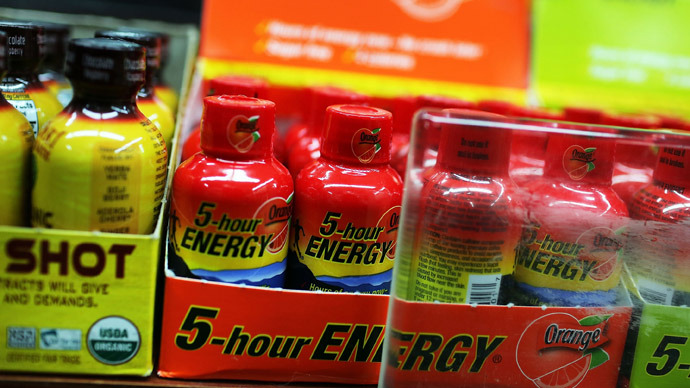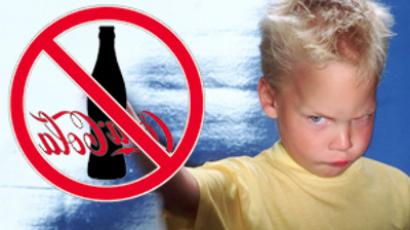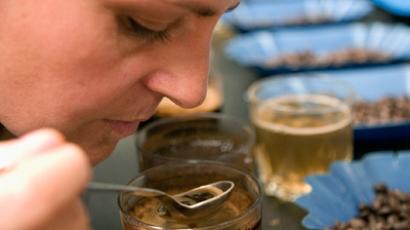Now caffeine's turn: Scientist urges for energy drink regulation

Caffeine addicts, beware: a leading scientist is calling for the regulation of caffeine in the United States, where tens of thousands of people are hospitalized for ‘overdosing’ on energy drinks each year.
In a frantic desperation to stay awake, Americans frequently opt for highly caffeinated energy drinks such as Monster and 5-hour Energy shots. Filled with sugar and 240 milligrams of caffeine – which is seven times the dose found in a regular can of soda – Monster energy drinks have recently been investigated for causing five deaths and one non-fatal heart attack in the US, AP reports.
Consuming too much caffeine can be fatal: in 2011, 20,783 people were hospitalized for overdosing on energy drinks, the Substance Abuse and Mental Health Services Administration reports. This is more than twice as high as the 10,068 that were hospitalized in 2007.
The increasing trend of caffeine poisoning in the US has prompted at least one scientist to call for the regulation of the substance. Jack E. James, editor-in-chief of Journal of Caffeine Research, said lawmakers need to consider the high number of caffeine-related deaths and near-deaths in the US in order to understand the need for regulation.
The lethal dose of caffeine for adults is estimated to be approximately 10 grams. While consuming several cups of coffee is usually harmless, combining caffeine with other substances, like alcohol or prescription drugs, can be dangerous. And with the presence of caffeine in a range of foods and drinks including beer and liquor, flavored milk, sunflower seeds, chewing gum, chocolate, ice cream, and cereal, it’s almost impossible to keep track of the amount of caffeine a person consumes each day.
In an editorial published Monday, James argues that as the number of caffeine-related hospitalizations increase, lawmakers are paying less attention to the idea of regulating caffeine.
“Armed with improved knowledge of caffeine toxicity and faced with extensive evidence of substantial harm to public health, today’s authorities appear more perplexed and less decisive than their counterparts of more than a century earlier,” James writes. “In light of current international befuddlement and inaction, legislators, policy makers, and regulators of today confront a stark question – how many caffeine-related fatalities and near-misses must there be before we regulate?”
In 1911, federal agents seized quantities of Coca-Cola syrup and declared its caffeine content a threat to public health. In response, Coco-Cola was required to lower its caffeine content, or else face legal action. James believes that similar initiatives should be taken with energy drinks today – especially since there is a greater knowledge base about the effect of the substance.
“The absence of a discernible policy framework for addressing such concerns continues to be an obstacle to needed action,” James writes.
While caffeine addicts may not be too pleased with the scientist’s report, not all American lawmakers are opposed to the idea of regulation. US Sens. Dick Durbin and Richard Blumenthal last year proposed that the Food and Drug Administration restrict caffeine levels in energy drinks. The call to action came after at least 13 deaths had been tied to the consumption of 5-hour Energy shots.
But because energy drinks are classified as “food supplements”, FDA limits on caffeine levels in beverages have no effect on “substances” like Monster, Full Throttle, Red Bull and 5-hour Energy. The FDA limits caffeine levels in beverages to about 70 milligrams per 12 ounces. But food supplements like energy drinks are not required to follow this rule.
“There’s increasing evidence of the very urgent and dangerous threat posed by these drinks because of their high levels of caffeine, which are often undisclosed, and the effects of combining that caffeine with other ingredients,” Blumenthal told Fox News.
And although there are presently no major initiatives to restrict the legal limits of caffeine in beverages, the scientist's report sheds further light on a problem that has been ongoing for decades -- especially among those who overestimate their limits.














